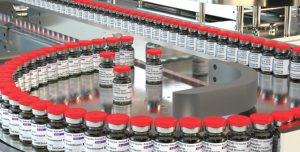Small to medium manufacturing enterprises have to address the basic and also most important locations for reliable business process automation and monitoring besides expansion specifically. PLM process management capacity is specified as a firm’s capability to efficiently control and also enhance New product development (NPD) management processes.

NPD
A new product isn’t always about developing a new-to-the-world product. In fact, only 10% of all new products are truly innovative and unique to the world. Upgrading existing products and relaunching them as new products, adding new products to the existing product mix, etc. are all essential practices for the company as they operate in a dynamic business environment where customer’s needs and tastes, technologies, and product life cycles are always changing.

But no matter what type of new product the company develops, its process can be easily be broken down into eight stages
Several of the issues could happen within the enterprise such as lack of openness on NPD tasks and their progress, lack of involvement of cross functional team in the decision-making process and C-level executives lack presence over company growth tasks. Cutting-edge services thrive by understanding what the market desires, making smart product improvements that fulfill as well surpass client expectations. In order to remain ahead of the competitors with the developments in modern technologies, companies must aim to stand apart with product design and developments while increasing profitability and also decreasing costs per unit.
These are the broad locations which any type of firm irrespective of the domain name and also sector they operate in, needs to address for it to be successful. Consumer partnerships and supply chain monitoring will certainly be essential only when the firm has a robust product to offer that has actually created a big need on the market.

Primary functional areas of PLM are as:
 Product structure (bill of material) management
Product structure (bill of material) management Management of design and process documents
Management of design and process documents Central data vault (electronic file repository)
Central data vault (electronic file repository) Part and document classification and metadata (“attribute”) management
Part and document classification and metadata (“attribute”) management Materials content identification for environmental compliance
Materials content identification for environmental compliance Product-focused project task assignment
Product-focused project task assignment Workflow and process management for approving changes
Workflow and process management for approving changes Multi-user secured access, including “electronic signature”
Multi-user secured access, including “electronic signature” Data export for loading downstream ERP systems
Data export for loading downstream ERP systems
Product lifecycle management is the process of managing product-related design, production and maintenance information. PLM may also serve as the central repository for secondary information, such as vendor application notes, catalogs, customer feedback, marketing plans, archived project schedules, and other information acquired over the product’s life
The PLM process manages:
 Products and parts, including those which are used for tooling, inspection, calibration, training, operation and maintenance
Products and parts, including those which are used for tooling, inspection, calibration, training, operation and maintenance Documents that define the performance, functional and physical attributes of an item.
Documents that define the performance, functional and physical attributes of an item. Ancillary documents that are used for training, operation and maintenance of an item
Ancillary documents that are used for training, operation and maintenance of an item Electronic computer files that support the product’s design, development, production and subsequent post-production phases
Electronic computer files that support the product’s design, development, production and subsequent post-production phases Material content, including reporting on legally-proscribed or hazardous substances and the identification of part recycling and disposal methods.
Material content, including reporting on legally-proscribed or hazardous substances and the identification of part recycling and disposal methods.
Organizations that adopt PLM report that revenues increase, while per-unit product cost and administrative overhead is reduced.
Final Thoughts:
Industry 4.0 is changing the way manufacturing happen and improve services, creating higher effectiveness and also much better partnerships in between manufacturers, suppliers / vendors and also clients.
As previous industrial revolutions were led by innovations in manufacturing processes and systems, the advancements of industry 4.0 will be driven by a smart, interconnected, pervasive environment. PLM has a bigger role here.
Interested to have PLM rolled out to support your product development, contact us to fix an appointment. Glad to aid you!
About the Author:

Ankur Tyagi – Practice Head – Product Lifecycle Management ( PLM)
Ankur is an established leader with a strong Intrapreneurial mindset with passion for building digital enterprise & Product Lifecycle Management implementation and solution designing for the customers with use of exponential & deep technologies like PLM/PDM, PLM-CAD integrations, PLM-SAP integrations.
With two decades of experience, established profitable business units / divisions in the field of PLM implementation and consulting for Automotive, Manufacturing, Aerospace and Hi-tech customers.















































